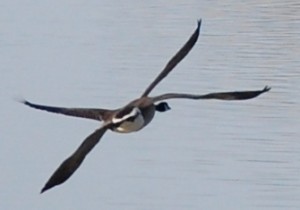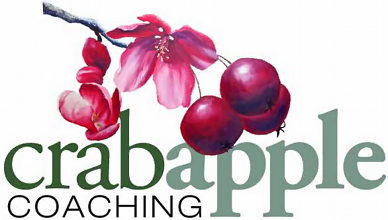 Tales of an Overachieving Retiree
Tales of an Overachieving Retiree
(Article 5 – Final)
A series of articles about the challenges of bringing overachievement into retirement and finding pleasure in the process
By Peter
Primary English Teacher / Curriculum Advisor
Retired 2009
My recent vacation in Cuba was a stopover helping me move to a more serene life, get a better grip on what I was liking and not liking, and decide where I wanted to be. I gave myself plenty of opportunities to reflect – from beach chair time to time spent in the bistro sipping on café con leche or a cerveza. The bistro time in particular was revelatory, not because of the drinks but because of a couple of life snapshots that occurred there.
Deviation to nature
Before describing the snapshots I will deviate, however, to something that I had been working on during the weeks before our vacation. I was mulling over how I am all too often stressed and preoccupied – and I stopped for a stillpoint to watch a chipping sparrow flitting around the base of our feeder, near where the clematis will soon be flowering. The thought slowly materialized that I would have less trouble being a bird than a beautiful flower. While the flower is constrained to its plot of soil, the bird gets to travel a bit. After a few minutes watching both, however, I came to sense that each exists in the moment – to enjoy the day and to get some nourishment. The clematis flourishes in its plot, drawing, perhaps imperceptibly, nutrition from sun and soil, radiant and beautiful.
Getting to the flower
I learned from a flower and a bird that it is possible to exist without having to perform. Just be, push down roots and enjoy the sun or the rain; hunt and peck for food and flitter off to a better vantage point to enjoy it. Each in its way is wonderful to watch. Both draw my attention, admiration and even my desire to care and protect. As Eckart Tollé suggests, they are ethereal, a window into the realm of the spirit. I was reminded of the New Testament description of the lilies of the field, seen as simple and sufficient, clothed in more glory than Solomon, without performing. As I contemplated the chipping sparrow, I realized that I can exist as I am and enjoy my life as well as be enjoyed by those around me. Like the lilies, or the clematis, I do not have to spin and toil, to overachieve, in order to be appreciated, in order to be ‘worth it’. But I have trouble getting to the flower, just being.
Getting to a stone wall
In Cuba, I had two experiences that made me reflect on overachieving. The first I named the stone wall effect. Every morning, for over a week, we went to the lobby bistro for a coffee. There were always two or three workers whose job seemed to be levelling out an area of earth, cement, and gravel where the bistro was to be extended. I did see them a couple of times with pick and shovel hard at work with rapid and sustained movements. Yet most of the time they were sitting on the stone wall enjoying their conversation. On a couple of occasions there were up to seven gathered for the extended break. Why? The dirt wagon was full and there was no tractor in sight to move it away and replace it. So they enjoyed what they had to do – wait. At first I judged them because they were not working and no one was on a phone or walkie-talkie to get hold of the tractor. How could they feel good not being busy, not providing full-time labour for their pay? It made me realize that there was an acceptance in their reaction. Life was organized that way. They worked hard when it was time to work and relaxed when it was time to relax. It depended on the tractor. I, on the other hand, have an attitude that I have to be in action. I drive my tractor. At times I even expect it to be in several places at the same time. I seem to make sure that there is little time off, and not enough moments to relax and enjoy life around me – family, friends, flowers.
Getting to enjoy the stretch
The second Cuban experience occurred one afternoon as I watched a troupe of dancers in rehearsal for the nightly entertainment. Through discussions with various staff members at the resort, I was keenly aware that most Cubans have precarious financial situations. Their economics are not rosy. Not a great motivation to achieve, let alone overachieve. Half of the dance troupe was working on choreography for a new song. The other half, closest to me, was congregated on the edge of the stage, challenging one another in some pretty strenuous stretching exercises. Despite the shade in the theatre area, it was very hot. I marvelled at the fact that they were really enjoying what they were doing. I wondered about the dreams of these young people and where their lives were heading. They may never get to audition for So You Think You Can Dance, but they were fully absorbed and savouring what they were doing. It hit me that they were having fun because not only were they were practising their art, but they were doing it together. They were friends relishing the camaraderie, the banter, and the amusement of their practice session. That was part and parcel of their existence.
My lesson was twofold. In my daily choices, by using my stillpoints if necessary, I can move toward enjoyment of my own stretching. I can enjoy practising my art even if I don’t feel totally competent or feel a little pressure because a project suddenly appears or changes and I have other loaded wagons waiting for the tractor. The second lesson is that being involved with others can become part of the motivation and the enjoyment. This is so for the work I do in a resource centre for men. There is a pleasant camaraderie that adds to the well-being I feel when I work as a therapist there. Perhaps I should involve other people in my projects, or at least share my plans, my ideas, my worries, even my accomplishments with them. Birds and flowers don’t live alone; nor should I.
Getting off the tractor
My wagons are the projects, and moments of joy – the birds and flowers of my life. My tractor is the engine of overachievement. As a result of my excessive dedication to achieving success – my overachievement – two problems emerge. One is that I am measuring myself against an external norm, which is not necessarily mine. The second problem is the unwarranted need to do, to produce. I no longer have to operate in either of these modes in my retirement. The ‘doing’ part of my life (work, career, reputation) has transferred into the ‘being’ part of retirement. Retirement means I can enjoy the things I have always wanted to do, but, more essentially, I can simply be. I can exist happily, serenely in my day-to-day life, without the stress of successfully performing or having to produce.
I feel that with the work I’ve done on myself in the past months, I have come to a better understanding of the overachiever in me. I have come to accept it and am finding ways to transform it. I have regained an ability to enjoy what I am doing as I’m doing it and not just the final outcome. I can have goals and projects, but they are now there to allow me to feel good about myself and to be the flower of my life. In order to get to the flower, to have time to be a bird, it is fitting for me to be realistic and to cut back, cut back so that what I do and experience is done with enthusiasm. I now have to get off the tractor, or at least sit in the cab, motor off, on the side of the road, far from the loaded wagon that needs to be towed, and consider what’s going on around me. Perhaps I can slowly read my new book, which challenges the cult of speed and busyness. Or perhaps not. Perhaps just contemplate, once again, the birds and flowers and enjoy the day.

As I say in my comment to Kathy Underwood’s article in this issue, Peter, aging and facing mortality may mean giving up the goals of absolute competence, productivity, and continuing independence until death. We may have no choice, as we lose capacity. So the work you’re doing seems like essential preparation. But important even now in ensuring the pleasures of the moment you are given now. Best wishes with it.
I really enjoyed this article, particularly the metaphors and what you learned from observing the Cuban workers and dancers. Thank you.
Thank-you Amy. Metaphors are fun, aren’t they. I enjoy using them. Glad you enjoyed the article.